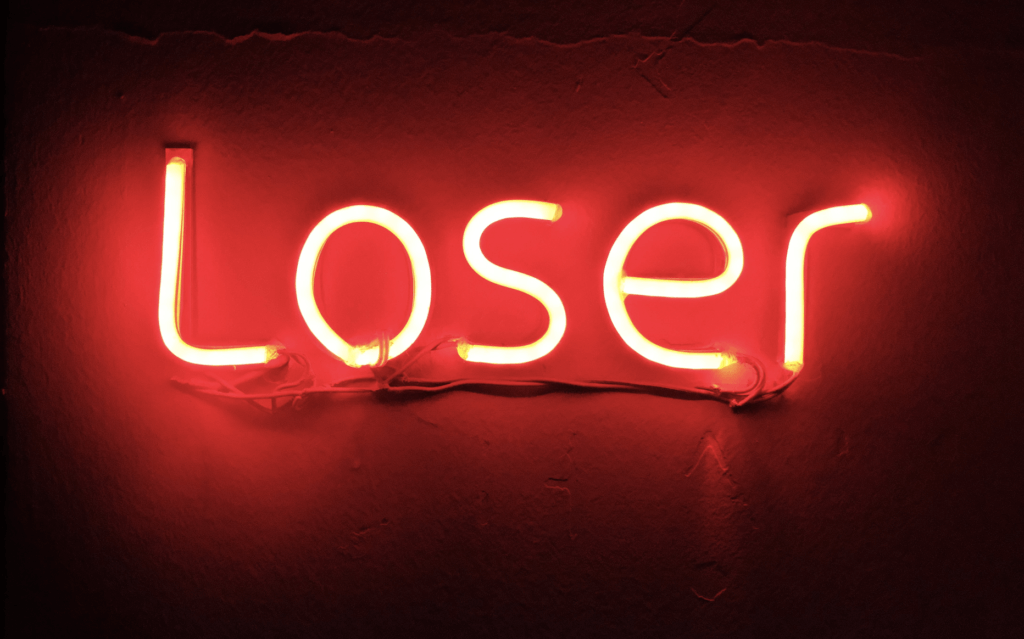Do you want to be more productive? Start by reading How to Be More Productive Without Burning Out by Matt Plummer in the Harvard Business Review. Plummer recounts a productivity experiment he started with bi-weekly meetings with a co-worker at a consulting firm.
The key to the experiment was the counter-intuitive way they measured productivity: reducing the number of hours worked per week. Over six months they reduced their average weekly hours worked by 15-20% and considered that a success.
But here’s the kicker. Plummer says “we were still getting just as much done as before.”
That’s productivity.
This is not the typical way law firms measure “productivity.” The vast majority of law firms generate the vast majority of their revenue through hourly billing. Not surprisingly, this results in measuring productivity by billable hours.
This, of course, is not true productivity. And tracking productivity this way contributes to some familiar pathologies law firms are known for: overbilling, inefficiency, lawyer burnout.
This is not to say that lawyers should ignore billable hours. Every good business has to watch its revenue like a hawk. Whether you’re an associate trying to make partner, a partner trying to stay a partner, or a managing partner trying to keep a firm afloat, you ignore billable hours at your peril.
But don’t start thinking that increasing billable hours—at the individual level or at the firm level—equals increasing “productivity.” That’s a lawyer-centric definition of productivity. It would be better to adopt a client-centric definition of productivity.
Of course, this advice is not limited to lawyers. Any profession that provides services to clients can benefit from focusing on generating quality work for the client in less time.
Increasing Your Productivity
Ok, you say. This year I will measure my productivity by overall work generated, not by billable hours. How do I increase that kind of productivity?
One option, of course, is to work more hours. Generally, if you spend more time working, you will increase the amount of output you generate.
But if you’re a lawyer or other professional, I’m guessing you are probably already close to your limit. As Plummer notes, a 2008 survey found that 94% of professionals worked 50 hours or more per week, and almost half worked more than 65 hours per week. That’s a lot of hours. And I doubt those numbers have dropped much in the last ten years.
Plus, there is the problem of diminishing returns. People are not robots. Initially, when we increase the number of hours worked, we increase output. But eventually mental and physical fatigue sets in, and each additional hour produces less and less output (diminishing marginal returns).
And here’s the somewhat surprising news: as we get close to our upper limit, our marginal output actually falls close to zero. As Stanford economist John Pencavel detailed here, a classic study from World War I found that for most people, this starts to happen around 55 hours per week, and I doubt that has changed much in the last 100 years.
The 60/70 Rule
I find the 55-hour figure interesting because it roughly correlates with a way I’ve always looked at work hours. You might call it the 60/70 rule.
You hear a lot about “work-life balance.” I find that phrase too abstract. For most people, it comes down to two questions: do you see your kids for dinner, and do you see your kids before they go to bed? (I don’t mean to exclude you if you don’t have children; it’s just that this is the issue for most people.)
When you have young children, the length of your work day really comes down to two things. If you work more than 60 hours a week, you probably don’t get home for dinner with your kids most nights. If you work more than 70 hours a week, you probably don’t even see your kids before they go to bed most nights.
Now, if you’ve made a conscious decision that getting ahead in your profession is worth sacrificing that daily time with your kids, that is fine (I guess).
But for those of you who don’t have children yet or have children still in diapers, let me mention something you may have heard before: They grow up fast.
Yeah, I know, you say. Everybody knows that.
No. Really. They grow up fast. I’m serious. You won’t really understand that until it has happened.
And here’s something to consider that may be less obvious. Working 60+ or 70+ hours a week during that 18-year blur is no guarantee that you will achieve whatever professional success you were hoping for. You just may find that you missed your child growing up and don’t have that much to show for it.
With that in mind, let’s get back to the research finding the point of diminishing returns starting at 55 hours per week. If working more than 60 hours per week doesn’t materially increase your productivity, is it really worth it not to see your kids?
Of course, the 55-hour threshold may not apply to you. Your number may be less or more. The point is that the threshold exists, and I would be willing to bet that most of you are already at or above the threshold.
If I’m right, then working more hours is not a sustainable strategy for increasing your productivity.
I’m also guessing that Plummer’s experiment—increasing productivity by reducing your hours worked while maintaining the same output—is not a viable option either. You just have too much work you need to get done each day, and that’s before you take your kid to ballet class, coach the basketball team, or sew the costumes for the school play.
That means the challenge for most of us is to maintain the same basic number of hours worked per week while accomplishing more work during those hours. To do that, we have to identify the things that reduce our productivity.
Top Five Productivity Killers
So I looked back and did a little self-assessment. I tried to identify the things that reduce the amount of work I get done and narrowed it down to five things. (Obviously, I have a thing for the number five.)
1. Interruptions
This one is pretty obvious. Read just about any article about workplace productivity and you’ll see something about interruptions. The classic examples are phone calls and people walking into your office needing something. And today, of course, we have emails.
Smarter people have studied the psychological reasons that interruptions hurt productivity, so I won’t belabor the point. Suffice to say that interruptions are a major productivity killer.
2. Social Media and Internet
You could look at this as a sub-category of Interruptions, but I think social media and Internet are important enough to get their own category. How many times during a work day do you get tired or bored and click on Facebook, Twitter, Instagram, Five Minute Law, whatever?
This is not necessarily a bad thing. If you actually use social media to interact with people, that can have professional benefits. And even if you’re just mindlessly surfing, that can serve a purpose too. Everybody needs little breaks to stay fresh and productive, and checking out cute photos of your niece on Facebook is better than taking a smoke break.
But have you ever tracked your social media and Internet time and added it up? I have. Believe me, it can take up a bigger chunk of your day than you expected. To be more productive this year, you need to keep it under control.
3. Disorganization
This one sounds really boring, but it is critical. Being disorganized will kill your productivity.
If you’re not organized, how much time do you spend each day looking for whatever document you need at the moment? How many times have you sat in a meeting where an important question came up that could be answered in seconds if someone in the meeting just had a laptop—or even a good old-fashioned three-ring binder—containing some basic working files?
The trouble is that most lawyers and other professionals are not naturally organized. I certainly wasn’t when I started law practice. I kind of looked down on “organized” people. When I saw the rare lawyer with a neat and tidy office, I would think, “that guy obviously isn’t a litigator” or “he must not have much work to do.” When you’re a very stable genius, you don’t need to be organized.
How wrong I was. If you spend chunks of your day searching through piles of documents scattered around your office, you are wasting time. It’s hurting your productivity, and it’s probably costing your clients money they shouldn’t have to pay.
4. Fatigue
This one overlays the others. Think about your work day and what causes you to stop working on something productive. In most cases, it’s because you’re mentally and/or physically fatigued. And the main reason you’re fatigued is that you didn’t get enough sleep. I definitively covered this topic in I’ll Sleep When I’m Dead: The Ignored Epidemic in the Legal Profession.
I think fatigue is also the main explanation for why returns start diminishing, for most people, around 55 hours per week. If you’re working more than 55 hours per week, you’re probably not getting enough sleep, and if you’re not getting enough sleep, you’re getting less done per hour, whether you know it or not.
5. Boredom
But it’s not just fatigue that causes us to stop working on the tasks we need to accomplish for the day. I know, we all love our jobs and can’t wait to get to work in the morning, but let’s face it. Sometimes we get bored.
No matter what your profession, there are probably some things you have to do that are simply boring. For litigators, the usual suspects are document review and legal research. That’s partly why these tasks are often assigned to young associates.
Personally, I usually enjoy doing legal research, even after 20 years of practice. One of the great things about my profession is that knowledge really is power, and every time you research a new legal issue, you add another arrow to your quiver. Legal research is only a drag when someone orders “find me case law that says X,” and X is either so obvious that courts haven’t needed to say it, or X is the opposite of what courts have said.
Same thing with document review. Sifting through boxes of documents produced by your adversary—or the digital equivalent—can be fun detective work, at least when you are looking for evidence concerning substantive issues. It’s more of a drag when you’re just mechanically reviewing documents, e.g. to identify documents that are attorney-client privileged.
In the inevitable situations where the work really is boring, it’s hard to stay productive. It takes an enormous amount of discipline to keep plugging away hour after hour at a really tedious task.
The Solution
So those are the five things I find hurt my productivity the most. Are they the same for you? Post a comment and let me know.
And now that we’ve identified the top five productivity killers, we can increase our productivity by eliminating them. All we need to do this year is (1) minimize interruptions, (2) put a reasonable cap on our daily social media and Internet time, (3) get organized, (4) get enough sleep every night, and (5) find ways to make our boring tasks more stimulating.
Easy, right?
____________________
 Zach Wolfe (zach@zachwolfelaw.com) is a Texas trial lawyer who handles non-compete and trade secret litigation at his firm Zach Wolfe Law Firm (zachwolfelaw.com). Thomson Reuters named him a Texas “Super Lawyer”® for Business Litigation in 2020, 2021, and 2022..
Zach Wolfe (zach@zachwolfelaw.com) is a Texas trial lawyer who handles non-compete and trade secret litigation at his firm Zach Wolfe Law Firm (zachwolfelaw.com). Thomson Reuters named him a Texas “Super Lawyer”® for Business Litigation in 2020, 2021, and 2022..
These are his opinions, not the opinions of his firm or clients.




Comments:
Zach, thank you for such an interesting post. To the words, for productivity improvement, I was recommended to master additional time management techniques. And I came to the conclusion that one of the best solutions is to use special applications which will help track the time spent on each task.
I started using TMetric https://tmetric.com/lawyer-time-tracking, in addition to its main task – time tracking, also perfectly copes with invoicing the client, and the possibility of billing by the hour, and timekeeping, etc. Maybe it will help someone else 🙂
Cool. Thanks for reading, and for sharing this tip!
Zach, great post, timely and spot on.
Thanks, Jason!